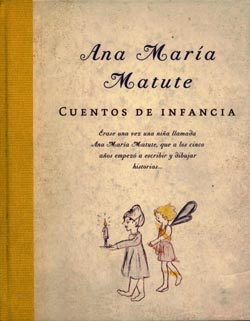


She often interjected such elements as myth, fairy tale, the supernatural, and fantasy into her works. Matute was known for her sympathetic treatment of the lives of children and adolescents, their feelings of betrayal and isolation, and their rites of passage. She published her first story, The Boy Next Door, when she was only 17 years old. At least once she was fined because of her writings. Her work was heavily censored under Franco and she was blacklisted from working as a journalist. Since Matute matured as a writer in this posguerra period under the dictatorship, some of the most recurrent themes in her works are violence, alienation, misery, and especially the loss of innocence. įollowing the Nationalist victory in 1939, Francisco Franco established a military dictatorship, which lasted thirty-six years until his death in 1975. She considered not only "the battles between the two factions, but also the internal aggression within each side". Matute was ten years old when the Spanish Civil War broke out in 1936, and this internecine conflict is said to have had the greatest impact on Matute's writing.

Settings reminiscent of that town are also often used as settings for her other work. This influence can be seen in such works as those published in her 1961 collection Historias de la Artámila ( Stories from Artámila), all of which deal with the people that Matute met during her recovery. Matute says that she was profoundly influenced by the villagers whom she met during her time there. At the age of four she almost died from a chronic kidney infection, and was taken to live with her grandparents in Mansilla de la Sierra, a small town in the mountains, for a period of recovery.


 0 kommentar(er)
0 kommentar(er)
